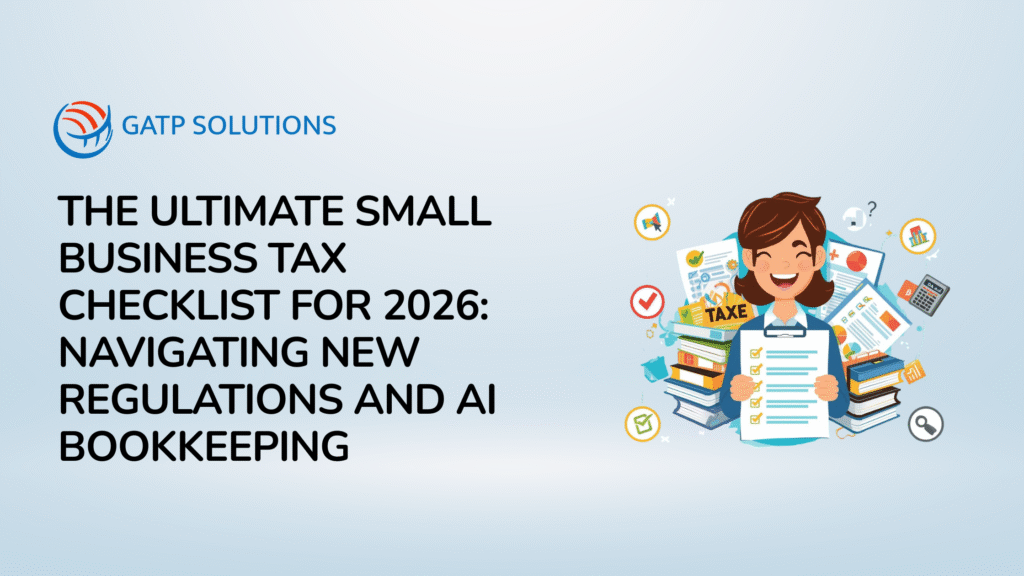The U.S. healthcare’s 340B program is one of the most important cost saving mechanisms for the country’s citizens till date. The program was started in 1992 under section 340B of the Public Health Service Act. It was established to support hospitals, healthcare systems and community centres to provide eligible outpatient drugs at discounted prices. These savings then could be redirected into patient care, outreach programs, and vital community services.
However, navigating the program in 2025 is more complex than ever. With continued manufacturer restrictions on contract pharmacy shipments, heightened HRSA scrutiny on telehealth prescriptions, and an increase in the sheer volume of auditable data, the risk of non-compliance has never been higher.
In this blog, we will explore the program requirements, audit challenges, and share the best practices to help you stay compliant.
Understanding 340B Program
The 340B drug pricing program was created to allow eligible healthcare providers to stretch limited federal resources. By purchasing outpatient drugs at significant discounts, covered entities can increase access to care for underserved patients.
Who all qualify for the program?
- Disproportionate Share Hospitals (DSH)
- Federally Qualified Health Centers (FQHCs)
- Children’s hospitals, rural hospitals, Ryan White HIV/AIDS clinics, and other safety-net providers
What are the benefits of participating in the program?
- In 2023, 340B covered entities purchased $66.3B in outpatient drugs (≈23–24% YoY growth). Analysts estimate the list-to-340B ‘gross-to-net’ gap at $57.8B in 2023, with 340B purchases ≈40% higher than Medicaid Rx purchases that year.
- Ability to reinvest funds into expanded services, patient affordability programs, or community health initiatives.
What are the risks of non-compliance?
- HRSA sanctions and penalties
- Repayment of disallowed discounts
- Possible exclusion from the 340B program altogether
OPAIS inaccuracies are the most common HRSA audit finding (~50%); duplicate discounts and diversion appear less frequent in recent cycles.
If you are participating in the 340B program, it is important for you to be in compliance with the rules and policies to avoid such penalties and risks.
Why 340B Compliance is Important in 2025?
With time, the scope and the regulations for the 340B drug pricing program has updated and gotten more complex for the providers. You need to take care of:
- More frequent HRSA audits with tighter data verification
- Manufacturer scrutiny over contract pharmacy usage and diversion risks
- Policy updates requiring transparent reporting of drug use and financial benefit allocation
- Challenges around duplicate discounts, Medicaid billing, and pharmacy oversight
Recent 340B Audit Consequences
The 340B program has faced intensified scrutiny and enforcement actions, resulting in significant penalties for both providers and manufacturers. Based on the latest audit data and enforcement activity:
- Financial Repayments: In FY2024, industry summaries of HRSA’s audit postings suggest ≈18% of audits required repayments for duplicate discount/diversion, and ≈4% required contract-pharmacy terminations tied to OPAIS errors.
- Contract Pharmacy Terminations: 4% of audits in FY 2024 resulted in contract pharmacies being removed from the 340B program because of incorrect OPAIS record filings.
- Civil Monetary Penalties: HHS/HRSA referred six manufacturers to OIG in 2021 regarding contract-pharmacy restrictions; CMPs can approach $6,000 per violation for knowing overcharges.
- Common Violations: Incorrect OPAIS records accounted for 62% of FY 2024 audit findings. Duplicate discounts and diversion each represented 17% of findings, with most tied to contract pharmacy activity.
- Financial Impact: Advocacy estimates indicate $1.1B in lost savings (2021) from restrictions by five manufacturers.”
If you are not able to meet the 340B program requirements, it will impact both your organization’s finances and reputation. A failed 340B audit not only risks repayment but also reduces the trust with your patients, payers, and regulators. That is why it is important for you to have a proactive approach to compliance.
Key Compliance Requirements Every Entity Must Follow
As a covered entity, you need to take care of the following areas to remain compliant with the program’s requirements:
- Patient Eligibility Documentation
Drugs must only be provided to individuals who meet HRSA’s patient definition. Medical records must clearly support eligibility.
- Accurate Inventory Management
You must track 340B vs. non-340B inventory to prevent diversion.
- Prevention of Duplicate Discounts
You must avoid receiving both a Medicaid rebate and a 340B discount on the same drug. Reconciliation with state Medicaid agencies is the key to maintain this.
- Audit-Ready Record Keeping
Maintain complete purchase-to-dispense documentation. Your records must withstand scrutiny in both HRSA and manufacturer 340B audits.
- Oversight of Contract Pharmacies
Contract pharmacy arrangements remain a high-risk area. You need to have clear oversight procedures and audit trails.
Having a strong accounting system will play a central role in meeting these 340B program requirements consistently.
What are the Common Compliance Challenges in 2025?
Even with the best intentions, covered entities like yours struggle with the 340B program compliance because of the following challenges:
- Complex billing structures across multiple payers and pharmacies
- Documentation gaps in patient records, leading to audit vulnerabilities
- Data integration issues between EHR systems, pharmacy dispensing software, and finance departments
- Administrative strain on accounting and compliance teams as audit requests increase
- Audit failures often tied to weak reconciliation practices or incomplete documentation
For example, a hospital might fail a 340B audit if patient eligibility documentation is inconsistent across pharmacy and billing systems. Such gaps highlight the need for standardized processes and accounting oversight.
340B Compliance Strategies and Best Practices
To have a compliant process and to avoid any penalties, you can use the following compliance strategies and 340B program best practices:
- Proper Internal Controls & SOPs
Create standardized compliance workflows across departments to minimize any human error.
- Regular Reconciliation
Perform monthly or quarterly reconciliations of purchases vs. dispenses. Your accounting teams should flag discrepancies early.
- Technology-Enabled Tracking
Use advanced accounting systems that create automated, audit-ready trails for every transaction.
- Ongoing Staff Training
Train your pharmacy, billing, and finance staff regularly and update them with the changes as they come.
- Dashboards & Checklists
Use compliance dashboards and checklists to monitor performance and readiness at a glance.
This is where GATP Solutions adds value. Our tools and expertise help providers:
- Track every 340B program transaction
- Ensure reconciliations are accurate and timely
- Maintain detailed documentation for 340B audits
- Reduce the administrative burden on internal accounting teams
Why Specialized Accounting is Non-Negotiable for 340B Compliance
Accounting and auditing play a major role in 340B compliance. The teams ensure financial compliance of the program by:
- Managing the Split-Billing Process: Ensuring virtual inventories correctly distinguish between 340B and non-340B drugs at the point of dispense.
- Reconciling Accumulators: Tracking drug purchases at wholesale acquisition cost (WAC) and accurately replenishing with 340B-priced drugs.
- Building the Audit Trail: Creating an unbreakable financial link from the purchase order for a drug to the final patient claim, ready to withstand HRSA or manufacturer scrutiny.
- Preventing Duplicate Discounts: Performing detailed reconciliations against state Medicaid claim files to identify and prevent dual-discount scenarios.
GATP Solutions helps healthcare providers establish accounting-led compliance systems. By aligning financial processes with regulatory expectations, you can ensure every dollar of savings is properly tracked, reported, and reinvested.
How GATP Solutions Supports 340B Compliance
We know your internal teams are stretched thin. 340B compliance isn’t a part-time job. It requires dedicated, specialized expertise that is often unavailable in-house. GATP Solutions acts as your dedicated compliance partner, providing:
- Expert-Led Reconciliations: Our specialized accounting teams focus solely on 340B complexities, catching discrepancies your general finance team might miss.
- Audit-Ready Documentation on Demand: We build and maintain your audit trail continuously, so when HRSA calls, you’re prepared in hours, not weeks.
- Cost-Effective Expertise: By leveraging a global team, we provide enterprise-level compliance support at a fraction of the cost of hiring a full-time, in-house 340B analyst.
What Our Clients Say
“GATP’s team understood both the regulatory requirements and the accounting complexities. They didn’t just tell us what to do, they integrated with our finance team to make compliance automatic.”
CFO, Southeast Health System
“After working with three other 340B consultants, GATP was the first to actually solve our duplicate discount issues permanently.”
Pharmacy Director, Community Health Network
Partnering with GATP ensures your financial systems support compliance, not hinder it.
Conclusion
The 340B program continues to play an important role in expanding access to affordable medications, but the compliance is also getting more demanding than ever. To summarize, you need to prioritize:
- Strengthening record-keeping to ensure every transaction is documented and audit-ready
- Preventing duplicate discounts through accurate Medicaid and payer reconciliations
- Maintaining strong contract pharmacy oversight with clear accountability measures
- Performing regular reconciliations between purchases, dispenses, and reimbursements
- Investing in compliance tools and expertise to reduce administrative burden and mitigate risk
With stricter HRSA audits and manufacturer rules, providers cannot afford to leave compliance just to chance. GATP Solutions delivers accounting-led support, audit readiness, and compliance tracking to help you safeguard margins while staying fully compliant.
Partner with GATP Solutions today and secure a stronger, more transparent future for your 340B compliance strategy.
Frequently Asked Questions
What is the 340B program and who can participate?
The 340B program is a U.S. federal initiative that allows eligible hospitals, community health centers, and other covered entities to purchase outpatient drugs at discounted prices. Participants include disproportionate share hospitals (DSH), rural referral centers, and Federally Qualified Health Centers (FQHCs).
Why is 340B compliance so important in 2025?
In 2025, stricter oversight from HRSA and manufacturers has made 340B compliance more critical than ever. Non-compliance can lead to financial penalties, repayment obligations, or even removal from the program, which can significantly affect patient care funding.
What are the core 340B program requirements?
- Verify patient eligibility for 340B drugs
- Prevent duplicate discounts with Medicaid
- Maintain accurate records of purchases and dispenses
- Oversee contract pharmacy arrangements
- Stay audit-ready for HRSA and manufacturer reviews
How do HRSA audits impact 340B participants?
340B audits conducted by HRSA can uncover issues like diversion or duplicate discounts. Entities that fail to meet 340B program requirements risk corrective action plans, financial repayments, and reputational damage.
What are the most common challenges in maintaining 340B compliance?
Challenges often include managing complex billing systems, ensuring patient eligibility documentation, integrating data across pharmacies and providers, and reconciling inventory accurately. Many covered entities rely on compliance checklists and audit support tools to stay prepared.
How can accounting teams support 340B compliance?
Accounting plays a key role by reconciling purchases, monitoring payor claims, and creating audit-ready trails that link prescriptions to dispenses. Partnering with firms like GATP Solutions helps covered entities streamline financial tracking and maintain compliance confidence.
What role do contract pharmacies play in the 340B program?
Contract pharmacies expand patient access to discounted drugs, but they introduce additional compliance risks. Covered entities must monitor these arrangements closely to prevent diversion and ensure all 340B program requirements are met.
How often should covered entities perform 340B audits internally?
Best practice is to conduct internal 340B audits at least quarterly, alongside HRSA’s formal reviews. Regular self-audits ensure documentation gaps, inventory mismatches, and compliance risks are identified early. Many providers use tools and guidance from GATP Solutions to simplify this process.
What technology solutions can improve 340B compliance?
Technology helps automate patient eligibility checks, reconcile pharmacy transactions, and flag potential compliance issues. Accounting-focused platforms, such as those offered by GATP Solutions, give providers real-time visibility into compliance and audit readiness.
How does 340B compliance affect financial performance?
Strong compliance ensures that covered entities can retain the savings from the 340B drug pricing program and reinvest them into patient care. Poor compliance, on the other hand, can lead to financial losses from penalties, repayments, and reduced eligibility.




